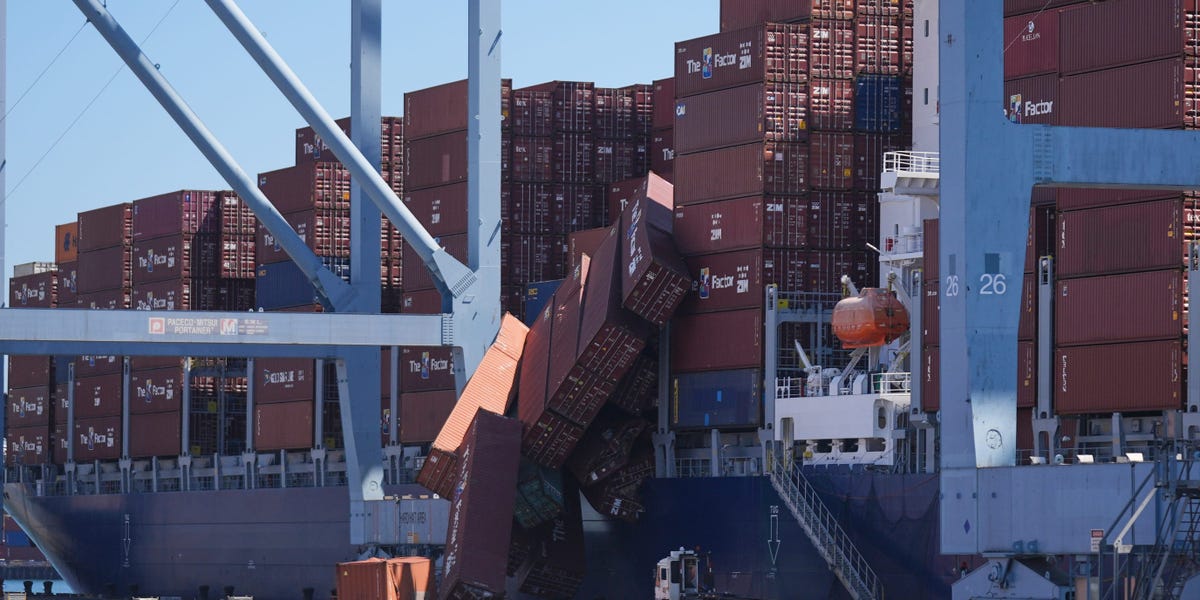Cargo Chaos: Dramatic Moment Containers Cascade into California Harbor

A maritime mishap unfolded at the Port of Long Beach when more than 60 shipping containers dramatically tumbled from the deck of the Portugal-flagged vessel Mississippi. The 837-foot cargo ship experienced a significant container loss, raising concerns about maritime safety and potential environmental impact.
The incident occurred during routine shipping operations, causing immediate alarm among port authorities and maritime professionals. The fallen containers now pose potential risks to marine navigation and could potentially create hazards for local marine ecosystems.
Port officials have already initiated emergency response protocols to assess the situation, track the fallen containers, and mitigate any potential environmental or navigational dangers. Preliminary investigations are underway to determine the exact cause of the container collapse and to prevent similar incidents in the future.
The Port of Long Beach, one of the busiest container ports in the United States, is known for its rigorous safety standards, making this incident particularly noteworthy. Maritime experts are closely monitoring the situation and will likely conduct a comprehensive review of the vessel's loading and securing procedures.








